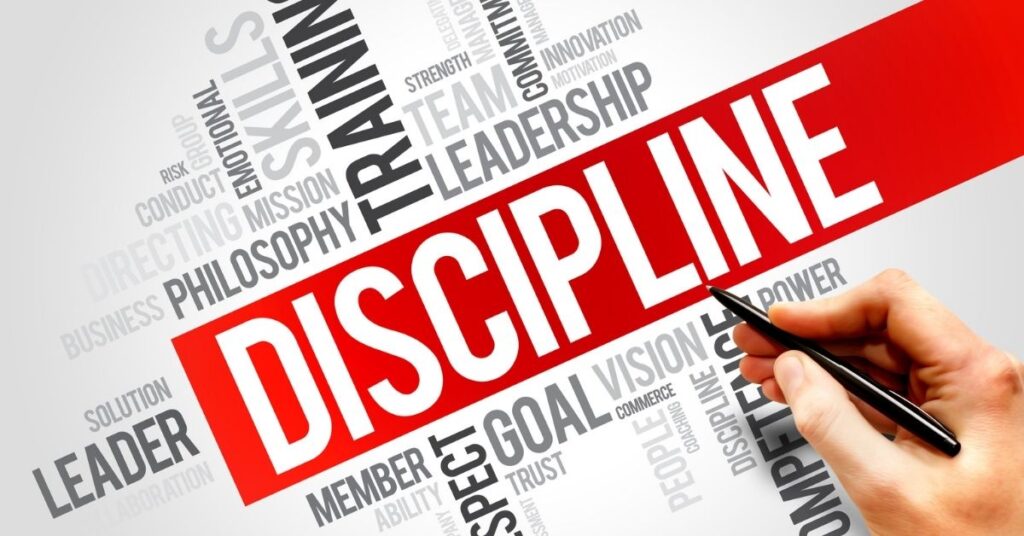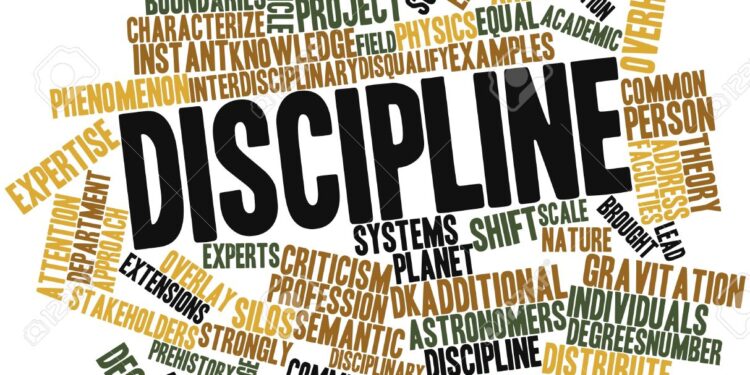Discipline is a concept often associated with rigidity, rules, and punishment. However, its essence extends far beyond mere obedience and control. True discipline is a blend of self-awareness, commitment, and growth. In this reflective exploration, we delve into the multifaceted nature of discipline, uncovering its nuances and shedding light on its transformative power. In Reflective Thoughts on Discipline, discover strategies to overcome emotions and cultivate self-control for greater success.
Understanding Thoughts on Discipline:
Discipline is often misunderstood as a rigid set of rules or a means of control. However, true discipline transcends these notions, embodying a holistic approach to self-awareness and growth. It is not about punishment or coercion but rather about cultivating habits, attitudes, and behaviors that align with one’s values and aspirations. Discipline empowers individuals to harness their inner strength, overcome challenges, and live with purpose and intentionality. It is a journey of self-discovery and self-mastery, inviting us to embrace the transformative power of conscious choice and deliberate action.
At its core, discipline encompasses a conscious effort to align actions with goals, values, and principles. It is not about stifling spontaneity or suppressing individuality, but rather about channeling one’s energies purposefully. Discipline provides the framework within which creativity, productivity, and personal development thrive.

The Role of Self-Discipline:
Self-discipline forms the cornerstone of personal and professional success. It involves the ability to regulate one’s thoughts, emotions, and behaviors in pursuit of long-term objectives. While external sources of motivation may wax and wane, self-discipline endures, serving as an inner compass guiding individuals through challenges and temptations.
The role of self-discipline cannot be overstated in the pursuit of personal and professional success. It serves as the bedrock upon which goals are achieved and dreams are realized. Self-discipline empowers individuals to stay focused amidst distractions, to persevere in the face of adversity, and to maintain consistency in their efforts.
Cultivating Discipline:
Discipline is a skill honed through practice and perseverance. Like a muscle, it requires regular exercise to strengthen. Establishing routines, setting SMART (Specific, Measurable, Achievable, Relevant, Time-bound) goals, and prioritizing tasks are effective strategies for fostering discipline. Moreover, cultivating habits of mindfulness and self-reflection enhances self-awareness, enabling individuals to make conscious choices aligned with their aspirations.
Discipline versus Punishment:
Contrary to popular belief, discipline is not synonymous with punishment. While punishment seeks to deter undesirable behavior through fear or retribution, discipline seeks to foster growth and accountability. Discipline entails understanding the root causes of behavior and addressing them constructively, fostering a culture of learning and empowerment rather than one of fear and resentment.
Discipline in Relationships:
Discipline extends beyond the individual realm into the dynamics of relationships. Healthy relationships thrive on mutual respect, communication, and compromise—qualities that require discipline to cultivate. Whether in romantic partnerships, friendships, or professional collaborations, discipline manifests as the willingness to listen, empathize, and collaborate towards shared goals.
The Paradox of Freedom and Discipline:
Some may perceive discipline as antithetical to freedom, viewing rules and structure as constraints on individual autonomy. However, true freedom arises from disciplined choices—freedom from impulsivity, from the tyranny of procrastination, and from the limitations of short-term gratification. Discipline empowers individuals to transcend immediate impulses and pursue higher ideals with clarity and purpose.
Discipline as a Catalyst for Growth:
Ultimately, discipline serves as a catalyst for personal and collective growth. It empowers individuals to transcend limitations, overcome adversity, and actualize their potential. Through discipline, individuals cultivate resilience, perseverance, and self-mastery—qualities that enable them to navigate life’s challenges with grace and determination.
Conclusion:
In essence, discipline is not merely a set of rules to be followed but a philosophy of intentional living. It is a journey of self-discovery and self-mastery, enabling individuals to unleash their fullest potential and contribute meaningfully to the world. By embracing discipline as a guiding principle, we embark on a path of growth, fulfillment, and transformation—a path illuminated by the unwavering light of self-awareness and purpose.
In the tapestry of life, discipline weaves the threads of intentionality, integrity, and resilience, creating a masterpiece of purposeful living. As we reflect on the insights gleaned from this exploration, may we embrace discipline not as a burden to be borne but as a beacon lighting the way towards a life of meaning, fulfillment, and joy.







